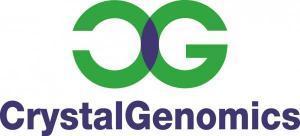Crystal Genomics said it has presented the results of the preclinical study of CG-745, proving the efficacy of its pulmonary fibrosis (PF) treatment candidate.

CG-745 inhibits the function of histone deacetylase, an epigenetic target protein, and the company proved its potential as a therapeutic agent for chronic kidney disease and cardiac hypertrophy through various animal tests.
As the company confirmed its efficacy in treating lung diseases, it expects to develop a treatment for PF patients, who has recently emerged as a social issue due to the hazardous humidifier disinfectant incident involving polyhexamethylene guanidine (PHMG).
PF is a disease in which the lungs are gradually hardening. Among its various types, idiopathic pulmonary fibrosis (IPF) has the worst outcome, with an average survival time of three to five years after being diagnosed.
The cause of IPF is not precisely known, but related factors include smoking, viral infections, environmentally toxic substances, and family history. Also, the incidence rate is rising amid population aging as the disease is more prone to affect older people.
As of now, the nation uses Pirespa and Ofev to treat IPF. However, there is a need for developing a safer treatment as the two treatments can only slow down the progression of the disease and have many side effects.
CG-745 showed excellent efficacy in PF in an antifibrotic animal efficacy test conducted by Professor Kim Hak-ryeol of Wonkwang University, the company said.
The team used a bleomycin-induced mouse disease model and the PHMG-induced mouse disease model to investigate the efficacy of CG-745.
CG-745-treated groups showed reduced expression of collagen, α-smooth muscle actin, and inflammatory factors, such as fibrosis, in both models.
The results of the research were published in the journal Molecules.

